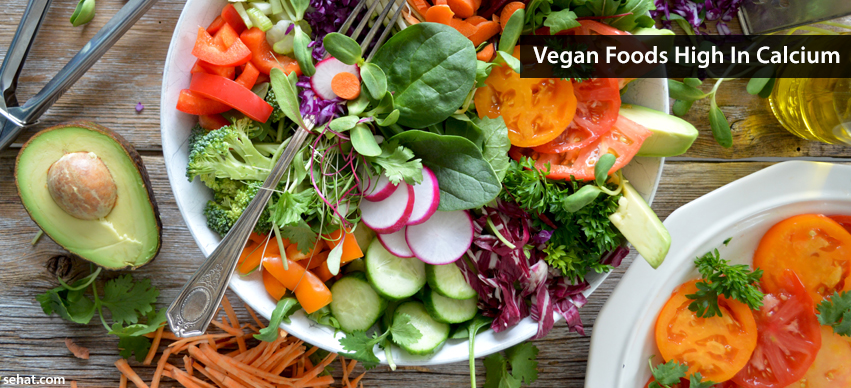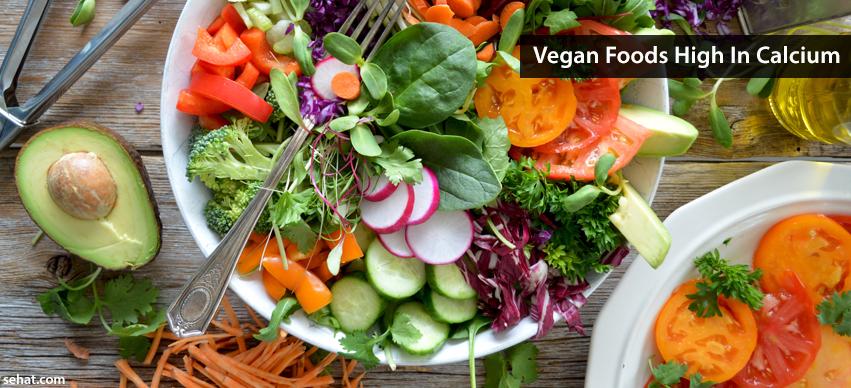Everyday Habits That Can Protect Your Eyes from Damage
4 Min Read


It’s a misconception that the only source of Calcium is Dairy Products. Vegan foods are rich in Calcium and various other food minerals like phosphorus, potassium, iron, etc.
A Vegan Diet contains only green vegetables, grains, fruits, nuts, and food made from plants. Therefore, meeting your calcium needs require more considerable attention as vegans may have a higher risk of bone fracture.
Vegans do not include meat in their diet. The intake of vegan foods that are high in Calcium and use calcium supplement to meet their nutritional needs and make bones firm and rigid. Supplementing is therefore frequently a wise choice, both for vegans and non-vegans.
Calcium is one of the seven nutrients that play a vital role in the proper growth and development of your body. Its benefits go far beyond merely keeping our bones strong. It helps in keeping your teeth top-notch, helps your blood clot. This mineral is also responsible for the transmission of nerve impulses and regulates the rhythm of your heart. Having milk is considered as one of the easiest and quickest ways to get enough calcium to reduce the risk of osteoporosis, a dairy-deficiency disease. It is a condition that makes your bones weak and brittle.
There are plenty of healthy sources apart from milk to meet the recommended daily calcium intake. Let’s delve into the various calcium-rich foods for bones
A single ounce or 2 tablespoons of chia seeds provide 179 milligrams of calcium.
1 cup of fortified soy milk contains approx. the same amount of calcium as cow's milk.
Just 1 cup of almonds contains 385 milligrams of calcium, which is more than 1/3rd of recommended daily calcium intake.
About 8 figs, or 1 cup, provides 241 milligrams of calcium.
Tofu tends to be an excellent source of Calcium. It can range from 275-861 mg per half-cup.
One cup of white beans provides 161 mg of calcium.
A single cup of sunflower seed kernel contains 109 mg of calcium.
Broccoli’s bitter cousin, broccoli rabe, contains 100 mg of calcium per cup.
One cup of frozen and prepared edamame contains 98 mg of calcium.
2 cups of raw and chopped kale yields 180 milligrams of calcium.
Having 1 tablespoon of sesame seeds adds 88 mg of calcium to prevent or delay cell damage.
One cup of frozen broccoli contains 87 mg of calcium.
A single sweet potato contains 68 mg of calcium to promote good eyesight, resistance to the effect of aging, and cancer prevention.
Various other sources for Calcium intake are Mustard and Collard Greens, Okra, Oranges, Orange Juice, Butternut Squash, Arugula, and many more.
There is no hard and fast rule to intake calcium. Its absorption rate varies from person to person. Optimum Calcium absorption varies at different stages, being highest during teen years and old age. It has been recommended that children with age ranging from 9 to 18 must take 1300 milligrams of calcium per day, 1000 mg for adults, and 1200 mg for women over fifty and men over seventy.
We often ask experts how to increase calcium absorption. You can attain a varied and balanced vegan diet by consuming most of the nutrients that are essential for your body
A plethora of nutrients play essential roles and work synergistically to keep bone mineralization keep functioning healthily. Besides Calcium and Vitamin D, other nutrients are potassium, phosphorus, protein, magnesium, zinc, copper, manganese, soy isoflavones, vitamin B12, C, and K.
Therefore, well-planned vegan foods that are high in calcium coupled with adequate exercise can ensure requisite nutrition level and good bone health. Every day, we make choices about the food we eat to maintain a healthy lifestyle. It makes a real difference to our ability to remain healthy and active now, and enjoy our lives to the fullest even in the future.